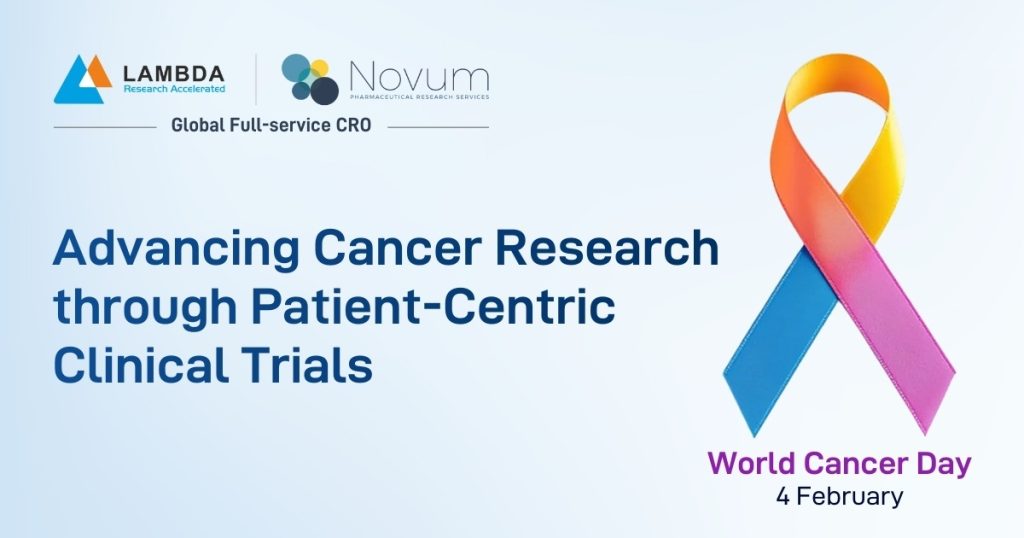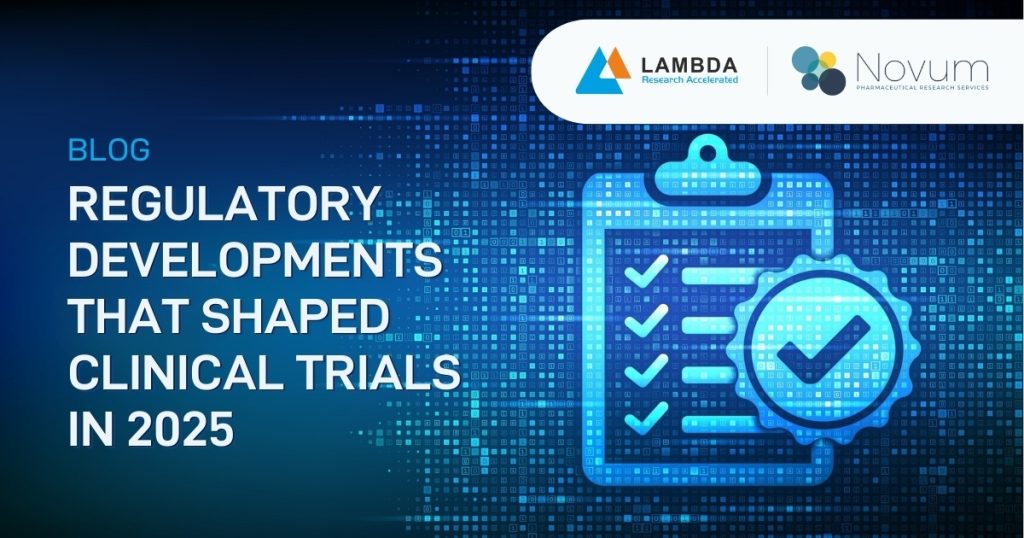This blog outlines the clinical and operational aspects of conducting a single-dose, parallel-group bioequivalence study for Semaglutide Injection.
Semaglutide is a GLP-1 analogue with 94% sequence homology to human GLP-1. GLP-1 is a physiological hormone that has multiple actions on glucose, mediated by the GLP-1 receptors. Semaglutide functions as a GLP-1 receptor agonist, selectively binding to and activating GLP-1 receptors—the primary targets of native GLP-1.
Type of study: Open label, Single subcutaneous dose, parallel, Bioequivalence study of Semaglutide Injection 1.34 mg/ml (2 mg/1.5 mL).
Study Objective
- To compare the bioavailability of the test product & reference product following a single subcutaneous injection dose in healthy adult human subjects.
- To monitor adverse events and ensure the safety of study participants.
Scope of work delivered by Lambda
An Indian pharmaceutical company aimed to obtain marketing approval for Semaglutide Injection 1.34 mg/mL (2 mg/1.5 mL), indicated as an adjunct to diet and exercise to improve glycemic control in adults with type 2 diabetes mellitus, and to reduce the risk of major adverse cardiovascular events in adults with type 2 diabetes mellitus & established cardiovascular disease.
Services Provided by Lambda:
- Study design
- Clinical conduct
- Protocol development
- PK Sampling
- Safety lab evaluations
- Bioanalysis
- Pharmacokinetic and Biostatistical analysis
- CSR preparation and Report Compilation
Study Execution Overview
Sample Size:
60 healthy adult subjects (Male and Female)
Study Duration & Visits
~5 weeks study duration, with multiple outpatient visits for PK sampling
Key Safety Measures Implemented (in addition to routine safety parameters)
- In addition to standard laboratory assessments at screening, specific safety parameters — serum lipase and amylase — were also evaluated.
- Glucose monitoring was conducted at each PK sample timepoint using a glucometer during both confinement and ambulatory periods.
- 20% glucose solution (60 mL) was administered to participants whose blood glucose levels dropped below 60 mg/dL.
- Subjects were educated to recognize symptoms of hypoglycemia and were informed about the steps to be followed in case of such events at home.
- For non-housing days, glucometers were provided to all subjects. Participants were trained to use the device correctly and to record glucose readings as needed.
- Only literate subjects were enrolled to ensure proper use of glucometers and adherence to study compliance.
Challenges and Solutions
The bioanalysis of Semaglutide presents unique challenges due to its high molecular weight, peptide structure, and tendency for carryover effects.
| Challenges | Mitigation Measures Implemented |
|---|---|
| Risk of hypoglycemia during housing |
|
| Risk of hypoglycemia during non-housing days |
|
Conclusion
The study was successfully completed within the stipulated timeline, without any deviations, and in compliance with the targated regulatory submission requirements.
About Lambda
Lambda & Novum delivers full-service CRO services to the innovator, biotech, and generic pharmaceutical industries worldwide. With a strong global presence in India, the USA, Canada, the UK, Spain and Poland, we bring specialized expertise to every project. Our focus on secure IT infrastructure and automation ensures timely project delivery and strict adherence to international regulatory standards. Lambda’s exemplary regulatory track record includes over 60 successful inspections and audits by esteemed authorities, including the USFDA, EMEA, MHRA, EU member states, and other global regulatory bodies, in the past five years.
Lambda’s commitment to excellence has garnered significant recognition, including the ‘Best Indian CRO’ award from Frost & Sullivan (USA) and the ‘Great Indian Workplace’ title from UBS Transformance. Recent accolades include the ‘Regulatory Excellence’ Award at the CPhI Pharma Awards 2023 and the ‘Industry Partner of the Year’ Award at the Global Generics & Biosimilar Awards 2023.
Lambda offers a wide range of bioanalytical capabilities specializing in cell-based assays, biomarkers, immunogenicity, and pharmacokinetics (PK). With state-of-the-art facilities and a team of experienced scientists, Lambda provides comprehensive solutions for the analysis of small molecules, biomarkers, biologics, and therapeutic trace elements.




